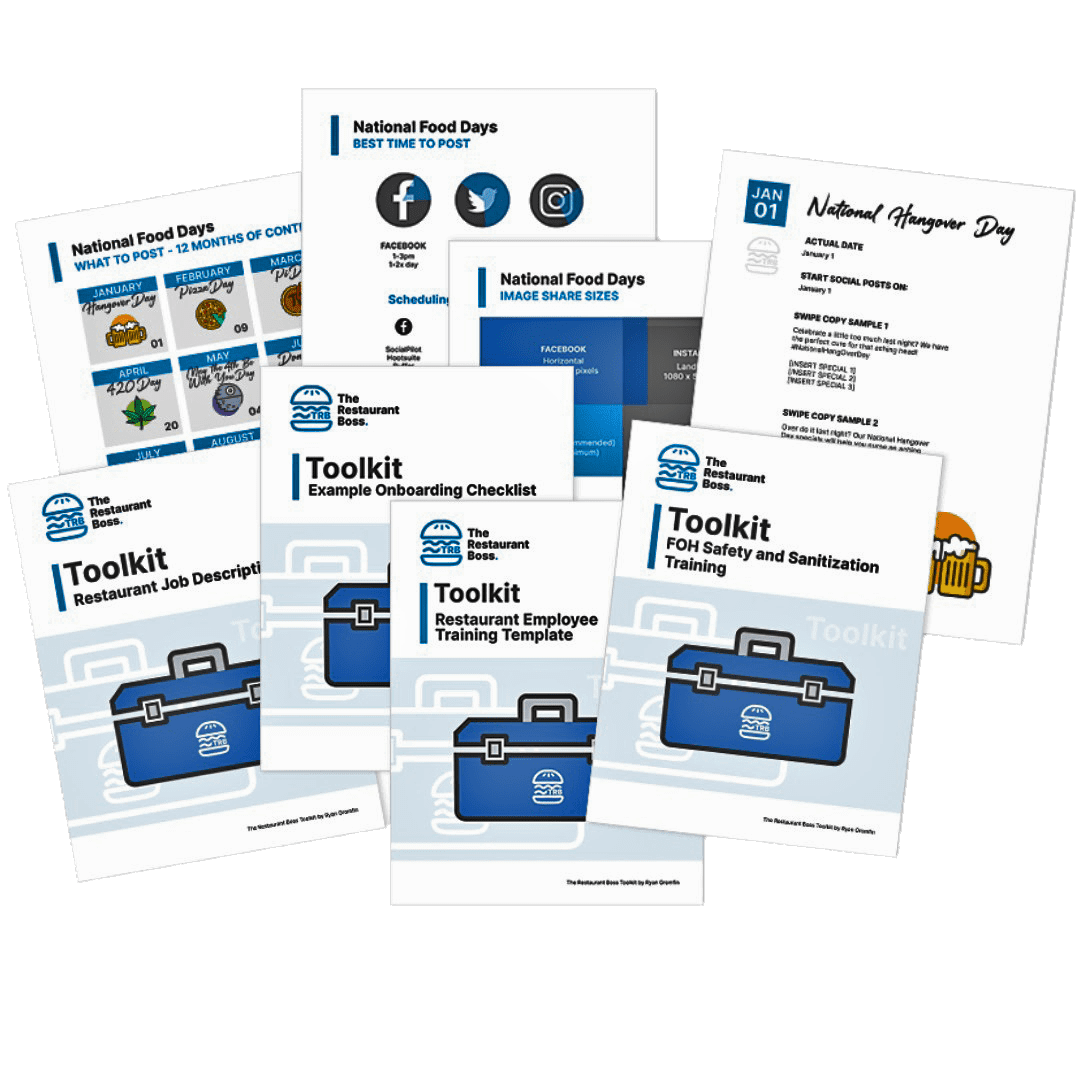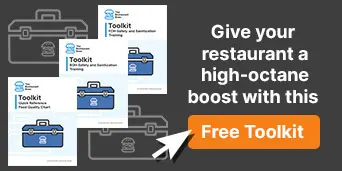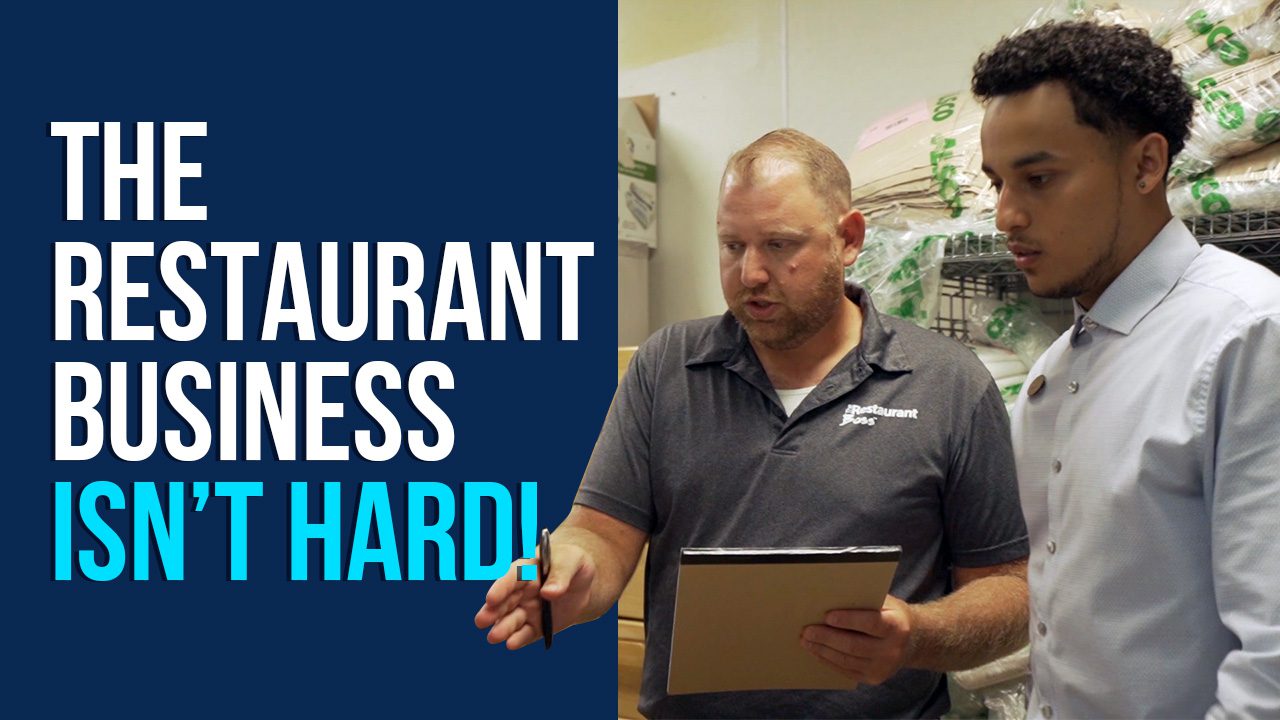Restaurant Employees When the Parents Are Away the Children Will Play
You know the saying, “when the cat is away, the mice will play.” When you leave your restaurant, do you know what your employees are doing? Is it business as usual or happy hour?
Read the Video Transcript by Clicking Here...
Introduction
Today’s training comes from a user-submitted question. His employees work very differently when he is there versus when he’s not. I’m sure you can relate to this as it’s an unfortunate truth in many restaurants.
When he’s present his staff works a lot better than when he’s not. He gets complaints from his managers and from other staff. ‘When the parents are away, the children will play’ type of thing. This happens a lot and it’s easy to get frustrated, yell, and scream at your staff. But for me, whenever I’m trying to find a solution to a problem I go back to ‘why’. Why is this behavior happening?
Why is this happening?
Chances are you’re managing people instead of managing a system. I often say “manage systems and develop people.” I don’t believe people can be managed. I’d love to engage with you in a conversation about this but, warning, you might wind up agreeing with me. Often, when we manage people, we don’t build systems. And then when you’re not there, they will not do the work you need.
At its core that’s usually one of the first things I see, a complete lack of systems. Or systems are in place but we’re not managing the systems. Instead, we’re managing people so when we’re not present – ‘Parents are away, the children will play.’ They’re responding to your commands, but not the systems. They’re responding to the fear of you and what you tell them to do instead of allowing the systems to manage them. The thought is: If I get caught I’m going to get in trouble, but since they’re not here I won’t get caught’. This is solely based on fear.
Ultimately to me, this is a complete lack of your employees understanding how they get paid. Here in the United States, most of our employees are paid by the hour and some managers are paid by salary. But still, you have to have an onboarding conversation with your employees and teach them what it means to earn a paycheck. Most people believe that a paycheck comes from hourly work, even salaried employees.
We see it all the time with salaried employees – to make up for their lack of effectiveness they just put in more and more hours. Then when you get angry or hold them accountable for projects that weren’t completed, they go back and talk to you about how many hours they’re working. We have this mentality that we get paid by the hour, that’s how we’ve set up the system and most people begin their work hourly.
The problem with paying by the hour is that in our heads we think that just because we showed up to work, we’re working so we should get paid. What I used to do when I was operating restaurants was sit down on day 1 or 2 with an employee and teach them what it means to be an employee in our restaurant. Everything they’ve ever learned, thought, or heard from their friends about being an employee, especially if this is their first job, is wrong.
I taught them how to be a good employee at our restaurant. One of the core things that I discussed is even though we may pay you per hour, ultimately you are being paid for the value you bring to this company. You are being paid for the amount of work you can complete in that hour, not the time you are here. Sure your paycheck will say that you worked 40 hours. But if you’re not getting the expected amount of work done within that time, then you’re not increasing the value that you bring to the company. If you’re not getting better, faster, more efficient on a regular basis by us training you better, then we’re just gonna stop paying – also known as a termination. That’s not quite how harshly I do this, it’s in a much softer way, but I’m just trying to get the point across in a very short period of time for you.
Final thoughts
If you struggle with this go back and re-watch the video one more time. Think about some of the things that I said. But I would especially encourage you to have a conversation about money versus value. Think about how you add value to the company, then give your employees a list of 20 or 30 things they can do to add value. Believe me, they’re not adding value if they only work when you are there. The whole point of owning a restaurant, multiple restaurants, or managing a restaurant is so that you don’t have to be there every minute of every day.
I believe in management and I believe the more we manage the better our results will be. But at the end of the day, as a manager, you should be able to go to the office and do some work. You should be able to step away for a couple of hours in the middle of a shift to go do something with your family or things that you have to do. Then come back for the busy periods and make sure that your staff is still doing the things that they’re supposed to be doing when you’re not there.
As an owner, you should be able to take a couple of days off a week or even a couple of weeks off a year to go on vacation and still know that things are going to get done properly. Ultimately that’s going to come down to the quality of your systems and the quality of your development of people. Manage systems, develop people. I hope today’s video is helpful. If this topic is something that you’re interested in, join us on our Facebook live where every week we go into much more depth and answer questions that you guys submit. https://www.facebook.com/TheRestaurantBoss/live_videos/
Read More
Running a Restaurant Isn't Hard
The #1 complaint in restaurant management is poor employee performance. If you’re not following this simple 5-step plan to train your employees, you’re never going to get the results that you want from them …ㅤㅤㅤ
Busy Is Killing Your Restaurant
Are you busy? There are things you’re doing all day, every day in your restaurant and it’s those things that are going to put you out of business. There are 4 things you can do today to battle the busy inside your restaurant …
Follow For More:







